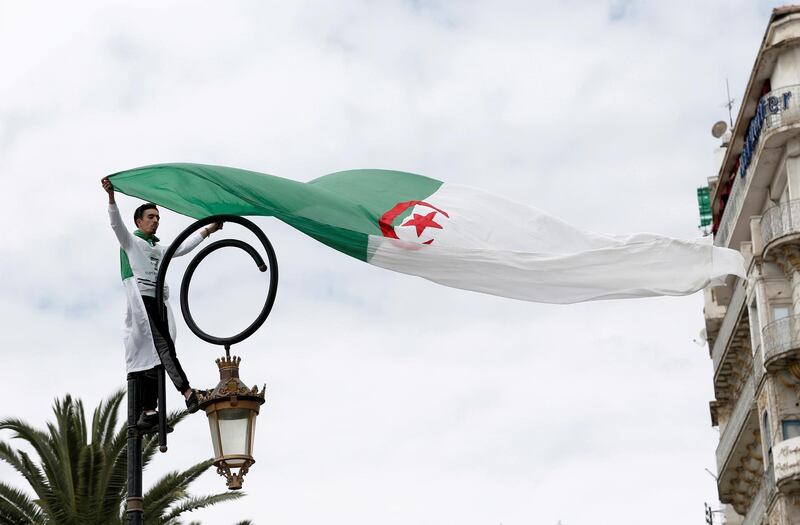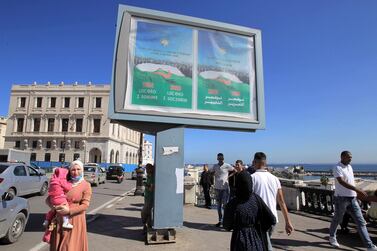Algerians started voting on Sunday on a revised constitution the government hopes will at last neutralise a protest movement that at its peak last year swept long-time president Abdelaziz Bouteflika from power.
Mr Bouteflika’s successor, Abdelmadjid Tebboune, who is in hospital in Germany, pitched the text as meeting the demands of the Hirak, a movement that staged vast weekly demonstrations for more than a year until the pandemic brought rallies to a halt.
But despite a determined government media campaign for a resounding “yes” vote to usher in a new Algeria, observers say the document offers little new.
“Nothing has changed. The ultra-presidential regime will stay,” said Massensen Cherbi, a constitutional expert at Sciences Po university in Paris.
Mr Tebboune, 74, placed Sunday’s referendum at the forefront of efforts to turn the page on the Hirak movement. After a campaign in which the “yes” camp dominated state-backed media coverage and supporters of a “no” vote were barred from holding meetings, few observers doubt the text will pass. The question is turnout.
Mr Tebboune said on Saturday that Algerians will once again “have a rendezvous with history” to bring in a “new era capable of fulfilling the hopes of the nation and the aspirations of our people for a strong, modern and democratic state”.
Seen by opponents as an old-school regime insider, Mr Tebboune came to power after the presidential poll in December 2019, which was marred by a record low turnout.
The Hirak movement led calls for a boycott of that election, and official data put the number of voters at lower than 40 per cent.
Few details of Mr Tebboune’s condition were released, but cases of the coronavirus among his staff were reported.
Experts say the referendum is partly a bid for more convincing validation at the ballot box.
Rather than attacking the youth-led Hirak, Mr Tebboune ostensibly reached out to it, describing it as a “blessed, authentic popular movement” and arguing that the revised constitution meets its demands. But despite his conciliatory language, many observers are sceptical, especially given the way the document was written.
“The drafting and consultation process was highly controlled by the state,” said Zaid Al Ali, an expert on constitutions in the Arab world. “It’s hard to argue that the Hirak’s demands for a fully inclusive debate on the state’s constitution was respected.”
And while the new text lists purported guarantees of social and economic rights, Al Ali says these promises are hollow.
“The constitution’s social and economic rights are not directly enforceable, which means that they are only aspirational,” he said.
Hirak, for its part, has rejected the document “in substance and form”, calling it a “change of facade” and urging voters to boycott the poll.
Algeria, with a population of 44 million and vast oil reserves, has been battered by low crude prices and the coronavirus pandemic, further hurting a young population already suffering from soaring unemployment.
While many expressed apathy over Sunday’s vote, government spokesman and Minister of Communications Ammar Belhimer predicted people would flock to the polls “to lay a new stone in the process of nation-building and check the manoeuvres of Algeria’s enemies”.
That rhetoric was accompanied by a campaign of arrests against pro-Hirak activists, bloggers and journalists, about 90 of whom are behind bars, said the CNLD, a prisoners’ support group.
Prominent Algerian journalist Akram Belkaid said the regime wanted to prevent Hirak militants “from relaunching the movement in the street once the health situation improves”.
“The repression currently under way also aims to prevent a large-scale boycott of the referendum,” he wrote in a blog post.
“That would undermine the credibility of its incantations about ‘a new Algeria’.”






